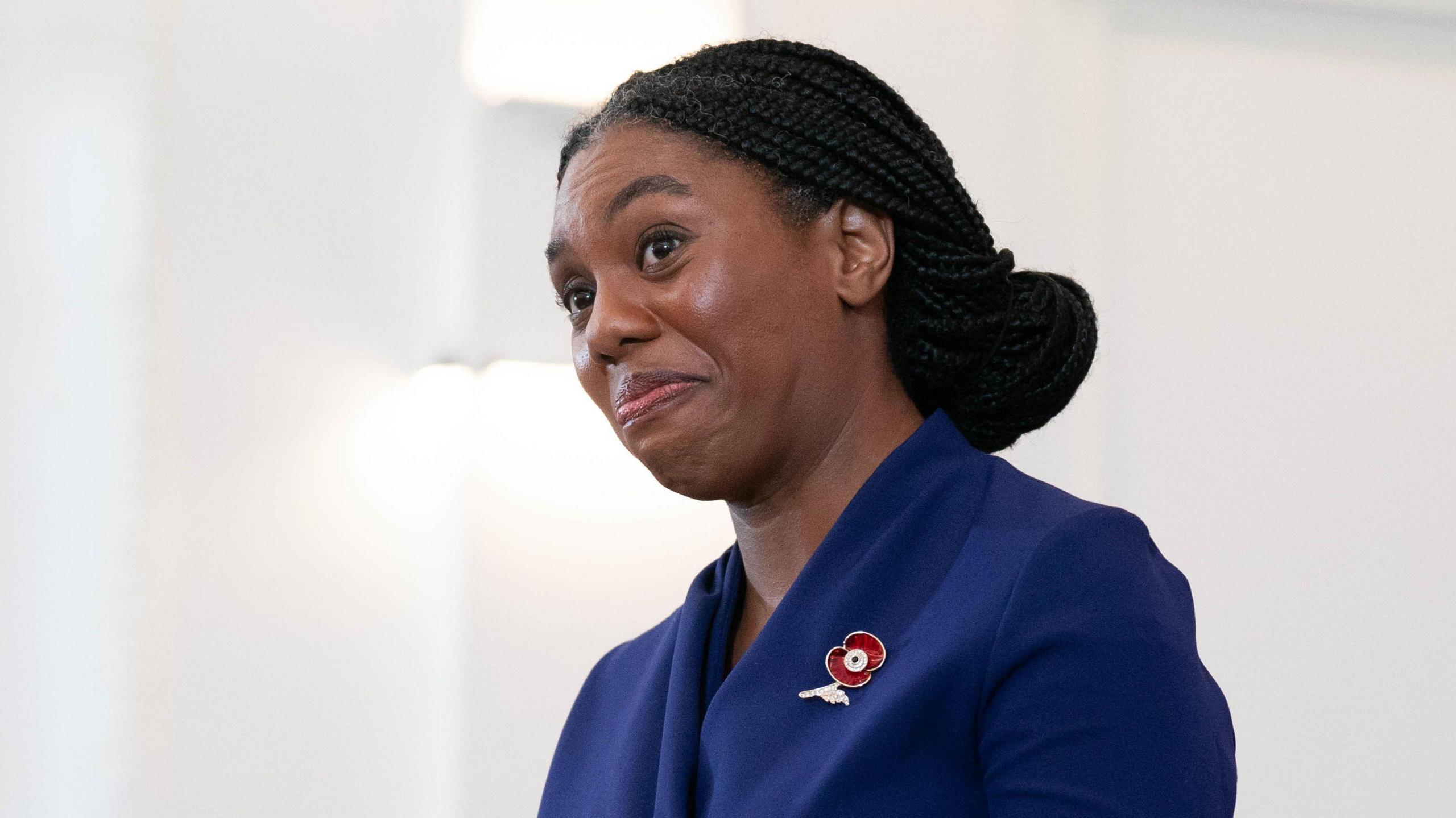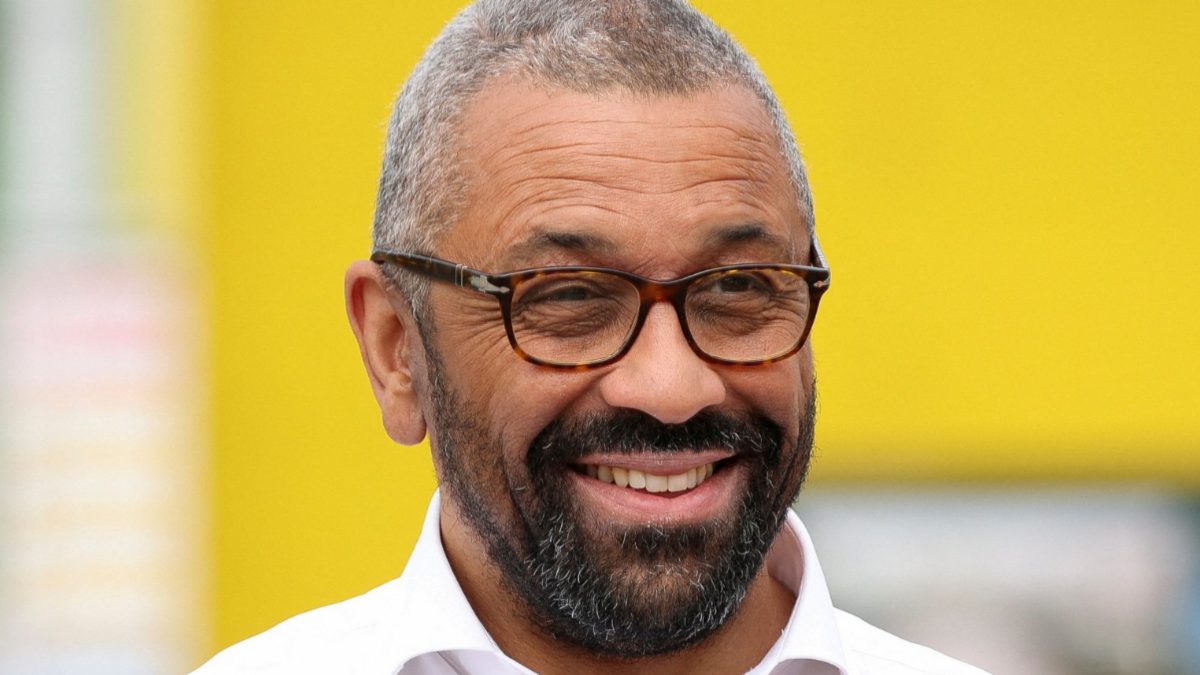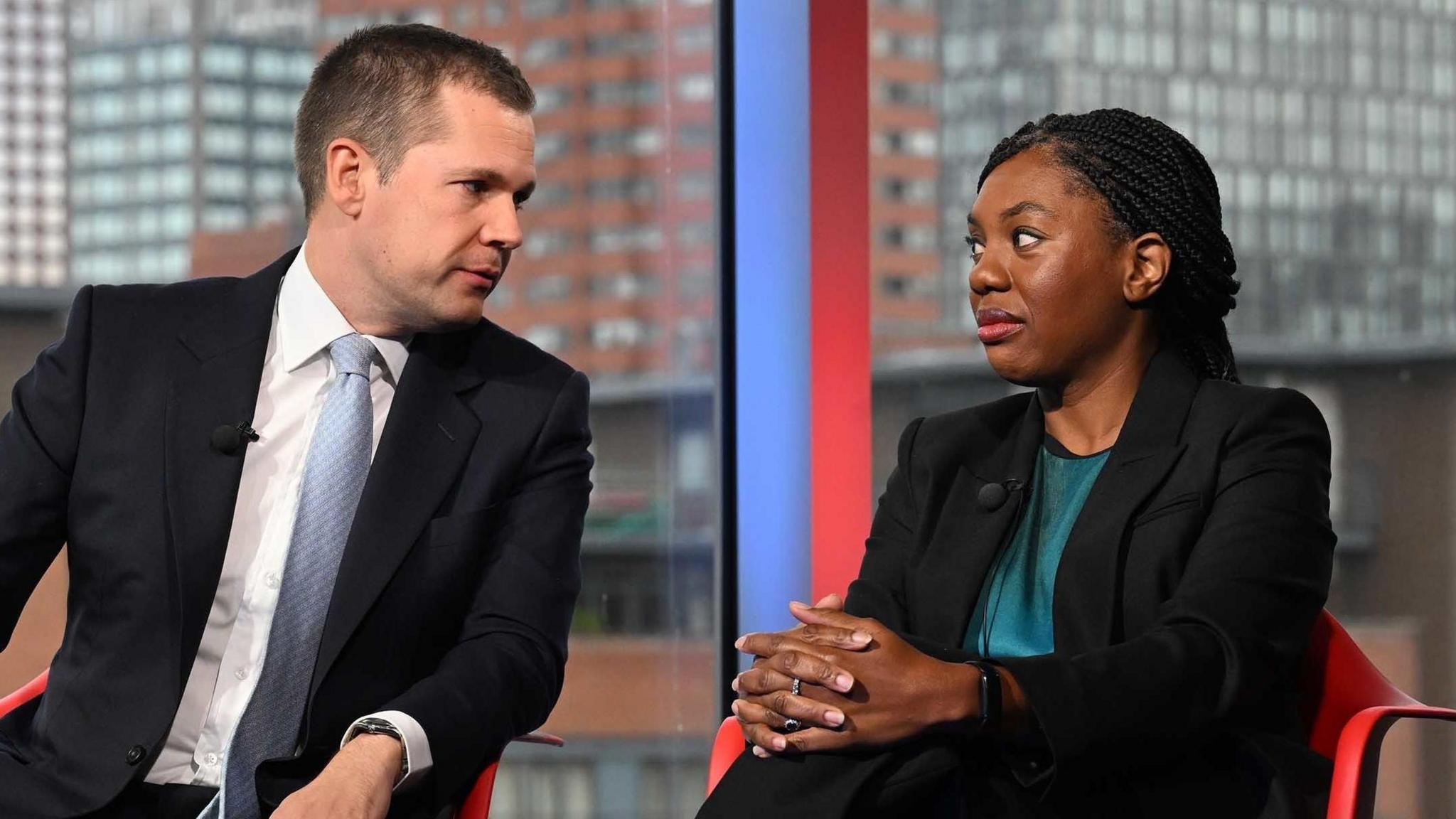Chris Mason: Badenoch will need all her political savvy to transform Tory fortunes

- Published
As the result of the Conservative leadership contest was read out, I was standing next to a group of MPs who have long backed Kemi Badenoch.
There were gasps, hugs, even some tears.
Many of them speak of her in superlative terms, seeing her as uniquely able among her generation of Conservatives.
Why? They admire her conviction, her plain speaking, her big thinking.
“She has real sparkle. It’s going to be fascinating seeing her taking on Starmer,” says one of them.
“We are going to have to get used to something quite novel,” another tells me. “That she will actually answer the question.”
Badenoch will need every last bit of political savvy for the challenge she takes on.
When the Conservatives were trounced in 1997 it took them four attempts to find a leader who would become Prime Minister.
William Hague, Iain Duncan Smith and Michael Howard came and went, before they elected David Cameron.
Westminster now anticipates a fascinating dynamic - a forty something black woman taking on a sixty something white man.
Both Kemi Badenoch and Sir Keir Starmer are, of course, far more than these crude labels but it is a point of obvious demographic contrast it would also be a mistake to overlook.
Politically, the contrast is starker still: the self-described socialist prime minister and a conviction Conservative of plain speaking instinct.
“She would cross the road to bite your ankles, whether you were goading her or not!”
This is a remark from a long term admirer of hers, delighted to see her win the Conservative leadership contest.
It is a character reference you don’t have to look hard to find about the new leader of the opposition, seen as sharp, even abrasive, by her friends, let alone those who are less keen on her.
It is something she herself is well aware of.
She told me just the other day on the BBC’s Newscast podcast that she was willing to tone down her approach.
I am told not to expect any appointments to her shadow cabinet immediately.
She will, though, make sure the key roles are filled in time for her leading her first shadow cabinet meeting on Tuesday.
Kemi Badenoch was the favourite to win this contest, but it is worth pointing out Robert Jenrick ran her pretty close.
Not many folk a few years ago would have imagined he would be right in the thick of a leadership contest to the very end, as he was.
He showed a hunger and energy for the role that also sought to draw a contrast with her relative shyness in front of journalists.
Jenrick said yes to seemingly nearly every request; she was almost invisible to the wider electorate until the final few days.
How will Badenoch adapt to a role that is all about public argument and appearances – will she relish it or grow to loathe it?
“She’s up for a political fight with Starmer and my goodness it’s about time we had a fight with Starmer!” one of her supporters tells me.
Plenty of their colleagues agree, but some caution that the Conservatives must not confuse early bumps for the new government with a sudden enthusiasm for the Tories.
“And are they actually prepared to be led?,” asks one Conservative MP.
“We were enthusiastically rejected. Kemi gets that it’s existential,” says the same observer, hoping the party shares this assessment.
Her supporters privately acknowledge she is not yet the finished article -- as she takes on the hardest and most unforgiving job in politics; a four year interview for the role she really craves: prime minister.
Precedent suggests pulling that off will be mighty difficult.
But precedents are there to be broken and frequently have been in recent years.
Kemi Badenoch’s task is to break another one.
Related topics
- Published2 November 2024

- Published2 November 2024

- Published12 October 2024
